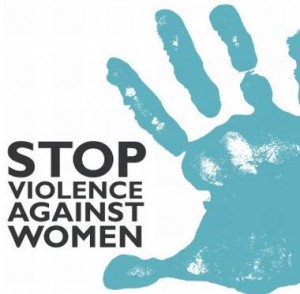Reauthorizing the Violence Against Women Act – The Right Way

The 2012 presidential election showed just how important the woman’s vote is in American politics, as President Obama was largely re-elected thanks to their support. This has allowed progressive lawmakers in DC to bring serious issues such as domestic violence and employment discrimination to the forefront.
The focus on women’s issues reached a climax with the recent re-authorization of the Violence Against Women Act, or VAWA as it is commonly known. VAWA’s main function has always been to support victims of domestic and sexual violence, a worthy goal that all Americans should get behind. The American Humanist Association did a lot of work on the issue, such as distributing multiple action alerts urging members to ask Congress to re-authorize the bill and working with other advocacy organizations to support VAWA.
This particular reauthorization of VAWA didn’t go over too smoothly, as the bill was delayed several times and the previous Congress failed to reauthorize it due to some disagreements between the House and the Senate over protections for native populations and LGBT Americans. Thankfully, the final version of the bill does offer important protections for gay, lesbian, bisexual or transgender victims of domestic abuse, in addition to allowing American Indian women that are assaulted on reservations by non-Indians to take their case to tribal courts, which otherwise would not have jurisdiction over assailants who do not live on tribal land.
But perhaps the most important part of this reauthorization effort is what isn’t in the final version of the bill: government sanctioned religious discrimination.
When the last Congress tried to reauthorize VAWA a Republican Congresswoman tried to insert an amendment that would have permitted religious aid organizations to discriminate in their hiring practices on religious grounds for programs that use VAWA funds. If this Congresswoman had had her way, religious groups charged with helping victims through federal funding could have discriminated against the very nonreligious Americans whose tax money is funding these programs. Obviously, such discrimination is unconstitutional and bad public policy, but leaders of the Religious Right didn’t let that stop them from supporting this amendment.
Thankfully, nonreligious and secular advocacy organizations were able to work successfully against this amendment, in part due to the tremendous level of grassroots advocacy done by humanists and other nonbelievers. The amendment was killed along with that particular version of the VAWA re-authorization bill when the 112th Congress ended in early 2013.
Now that VAWA has been passed, expect to hear more griping from the Religious Right over the LGBT protections and the inability of religious aid organizations to discriminate as they would like. Still, a lot of good has been done, and the ability of domestic violence victims of all sexual orientations to receive assistance and counseling will only get easier as the new protections and programs are implemented.
The passage of the original Violence Against Women Act in 1994 was a giant step forward for our nation. VAWA meant that our federal government formally acknowledged that gender and sexual violence cause tremendous harm, and resources to help victims and teachthe next generation how to combat gender-based violence are vital. It’s good to see that Congress still cares about preventing violence against women, even if it took a while for them to actually do something productive about it.
